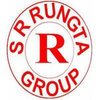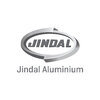
Hindalco Industries
Proud winner of ABECA 2025 - AmbitionBox Employee Choice Awards
Filter interviews by
Hindalco Industries Interview Questions and Answers for Experienced
124 Interview questions
I have overseen various engineering equipment, focusing on maintenance, operation, and optimization for efficiency.
Monitored and maintained HVAC systems to ensure optimal performance and energy efficiency.
Oversaw the operation of CNC machines, ensuring precision in manufacturing processes.
Managed the calibration of testing equipment, such as oscilloscopes and multimeters, for accurate measurements.
Conducted regula...
Promoting a safety culture involves engaging employees, providing training, and fostering open communication about safety practices.
Encourage open communication: Create an environment where employees feel comfortable reporting safety concerns without fear of retaliation.
Provide regular training: Conduct safety training sessions to ensure all employees are aware of safety protocols and procedures.
Lead by example: M...
A transformer is an electrical device that transfers electrical energy between circuits through electromagnetic induction.
Types of transformers include step-up and step-down transformers.
Step-up transformers increase voltage, while step-down transformers decrease it.
Common applications include power distribution and voltage regulation.
Transformers are essential in electrical grids to manage voltage levels.
SCADA systems monitor and control industrial processes, ensuring efficient operation and data collection.
SCADA stands for Supervisory Control and Data Acquisition.
It allows for real-time monitoring of equipment and processes, such as in water treatment plants.
Operators can control machinery remotely, improving response times to issues.
Data collected can be analyzed for performance optimization and predictive maint...
Diodes are semiconductor devices that allow current to flow in one direction, used in various electronic applications.
Rectification: Converts AC to DC in power supplies (e.g., bridge rectifier).
Clipping: Limits voltage levels in signal processing (e.g., audio circuits).
Voltage regulation: Zener diodes maintain stable voltage (e.g., in voltage reference circuits).
Signal demodulation: Used in radio receivers to extr...
A black diagram of a multiplexer illustrates its function of selecting one input from multiple sources based on control signals.
A multiplexer (MUX) has multiple input lines and one output line.
It uses select lines to choose which input to send to the output.
For example, a 2-to-1 MUX has 2 inputs, 1 output, and 1 select line.
In a 4-to-1 MUX, there are 4 inputs, 1 output, and 2 select lines.
A ROM cord converter is used to convert read-only memory data into usable formats for various applications.
Used in embedded systems to read firmware stored in ROM.
Facilitates data transfer between ROM and microcontrollers.
Example: In gaming consoles, it retrieves game data from ROM chips.
Essential in boot processes of computers to load operating systems.
Transformers are electrical devices that transfer electrical energy between circuits, primarily classified into various types based on design and application.
Step-up Transformer: Increases voltage, used in power plants.
Step-down Transformer: Decreases voltage, used in residential power supply.
Isolation Transformer: Provides electrical isolation, used in sensitive equipment.
Auto Transformer: Has a single winding, u...
A Zener diode allows current to flow in the reverse direction when a specific voltage is reached, providing voltage regulation.
Zener diodes are designed to operate in reverse breakdown region.
They maintain a constant output voltage despite variations in input voltage.
Commonly used in voltage regulation circuits, e.g., power supplies.
Example: A 5.1V Zener diode can regulate output to 5.1V in a circuit.
Zener diodes ...
A multimeter measures voltage, current, and resistance in electrical circuits, essential for troubleshooting and testing.
Select the measurement type: Use the dial to choose between voltage (V), current (A), or resistance (Ω).
For voltage measurement, connect the probes across the component: Red to positive, black to negative.
To measure current, break the circuit and connect the multimeter in series: Ensure the corr...
Hindalco Industries Interview Experiences for Experienced
143 interviews found
I appeared for an interview in Feb 2025.
Company me work & manpower leadershipting
(5 Questions)
- Q1. Boiler & Turbine related question
- Q2. Team work kaise hota hai
- Ans.
Teamwork involves collaboration, communication, and shared goals to achieve common objectives effectively.
Clear Communication: Team members should openly share ideas and feedback. For example, in a project meeting, everyone should voice their opinions.
Defined Roles: Each member should have specific responsibilities. For instance, in a production team, one person may handle quality control while another manages logistic...
- Q3. Safety related question
- Q4. Permit related question
- Q5. Works Responsibility related question
I appeared for an interview in Jun 2025, where I was asked the following questions.
- Q1. Do you have an awareness about Change Management?
- Ans.
Change Management involves structured approaches to transitioning individuals, teams, and organizations to a desired future state.
Change Management is crucial for minimizing resistance during transitions.
It includes planning, implementing, and monitoring changes effectively.
For example, in software development, Agile methodologies emphasize iterative changes.
Effective communication is key; stakeholders should be inform...
- Q2. What do you do when an machine goes in breakdown?
- Ans.
In case of a machine breakdown, I follow a systematic approach to diagnose and resolve the issue efficiently.
Assess the situation: Check for any immediate hazards or safety concerns before approaching the machine.
Identify the problem: Look for error codes, unusual sounds, or visual indicators that can help diagnose the issue.
Consult documentation: Refer to the machine's manual for troubleshooting steps and maintenance ...
- Q3. Give me an technical overview of the equipments you have overlooked.
- Ans.
I have overseen various engineering equipment, focusing on maintenance, operation, and optimization for efficiency.
Monitored and maintained HVAC systems to ensure optimal performance and energy efficiency.
Oversaw the operation of CNC machines, ensuring precision in manufacturing processes.
Managed the calibration of testing equipment, such as oscilloscopes and multimeters, for accurate measurements.
Conducted regular ins...
I appeared for an interview in Jun 2025, where I was asked the following questions.
- Q1. Safety culture .
- Q2. How to promote safety culture
- Ans.
Promoting a safety culture involves engaging employees, providing training, and fostering open communication about safety practices.
Encourage open communication: Create an environment where employees feel comfortable reporting safety concerns without fear of retaliation.
Provide regular training: Conduct safety training sessions to ensure all employees are aware of safety protocols and procedures.
Lead by example: Manage...
Interview Preparation Tips
I appeared for an interview in May 2025, where I was asked the following questions.
- Q1. What is the function of a SCADA system?
- Ans.
SCADA systems monitor and control industrial processes, ensuring efficient operation and data collection.
SCADA stands for Supervisory Control and Data Acquisition.
It allows for real-time monitoring of equipment and processes, such as in water treatment plants.
Operators can control machinery remotely, improving response times to issues.
Data collected can be analyzed for performance optimization and predictive maintenanc...
- Q2. What is the name of the Transformer?
- Ans.
A transformer is an electrical device that transfers electrical energy between circuits through electromagnetic induction.
Types of transformers include step-up and step-down transformers.
Step-up transformers increase voltage, while step-down transformers decrease it.
Common applications include power distribution and voltage regulation.
Transformers are essential in electrical grids to manage voltage levels.
- Q3. 220kv/33kv sld diagram
- Ans.
A 220kV/33kV single line diagram (SLD) illustrates the electrical connections and components in a power distribution system.
The 220kV side typically includes a transformer that steps down voltage for distribution.
The 33kV side connects to substations and distribution networks for local supply.
Key components include circuit breakers, isolators, and busbars.
Example: A transformer rated for 220/33kV with a specific power ...
- Q4. Sld diagram showing
- Ans.
An SLD diagram illustrates the electrical connections and components in a system for maintenance and troubleshooting.
SLD stands for Single Line Diagram, simplifying complex electrical systems.
It shows how components like transformers, breakers, and loads are interconnected.
Example: A diagram may depict a power distribution system from a substation to various loads.
SLDs help in understanding system layout and are crucia...
- Q5. Transformers parst name
I appeared for an interview in Apr 2025, where I was asked the following questions.
- Q1. Thermocouple.pressure gauge.servo valve.propotional valve pressure transmitter.pressure switch
- Q2. Micrometre.vernior caliper.dail gauges
- Q3. Nozzle . probe
Maths English aptitude test
Good ggggggggggggggggggggggg
(2 Questions)
- Q1. Technical about Geology
- Q2. MCDR 2017 mining plan exploration quality
- Ans.
The MCDR 2017 mining plan exploration quality refers to the quality standards set for mining exploration in the Mineral Conservation and Development Rules of 2017.
MCDR 2017 sets guidelines for exploration activities in the mining sector
The plan should focus on ensuring efficient and sustainable exploration practices
Quality control measures should be implemented to meet regulatory requirements
Regular monitoring and repo...
(2 Questions)
- Q1. How to control quality
- Ans.
Quality control can be achieved through implementing standardized processes, conducting regular inspections, providing training to employees, and utilizing feedback mechanisms.
Implement standardized processes to ensure consistency in product/service quality
Conduct regular inspections to identify and address any quality issues
Provide training to employees on quality standards and procedures
Utilize feedback mechanisms fr...
- Q2. How to Face difficulty in mines
- Ans.
Facing difficulties in mines requires staying calm, following safety protocols, and seeking help when needed.
Stay calm and assess the situation before taking any action
Follow safety protocols and use proper equipment to minimize risks
Communicate with team members and supervisors for assistance and guidance
Stay alert for any signs of danger such as gas leaks or cave-ins
Seek immediate help if you encounter any problems o...
(2 Questions)
- Q1. Salary negotiation
- Q2. When you will be join
- Ans.
I will be available to join starting next month.
I am currently wrapping up my current responsibilities and will be able to start in the next month.
I will need some time to give notice to my current employer before starting the new role.
I am excited about the opportunity and look forward to joining the team soon.
Interview Preparation Tips
(2 Questions)
- Q1. Qualifications and working experience.
- Q2. Knowledge related to profession.
General aptitude question for analysing the analytical skills.
(3 Questions)
- Q1. Question related to jobs.
- Q2. Field knowledge,
- Q3. Communication skills, talent analysis.
Interview Preparation Tips
(1 Question)
- Q1. Electrical Circuits Breakers?
(2 Questions)
- Q1. Type of water proofing
- Ans.
There are various types of water proofing methods such as membrane, cementitious, crystalline, and bituminous.
Membrane waterproofing involves applying a thin layer of waterproof material over the surface.
Cementitious waterproofing uses cement-based materials to create a barrier against water penetration.
Crystalline waterproofing forms crystals within the concrete to block water entry.
Bituminous waterproofing involves u...
- Q2. What are the types of NDT
- Ans.
NDT stands for Non-Destructive Testing, which includes methods like ultrasonic testing, radiographic testing, magnetic particle testing, etc.
Ultrasonic Testing
Radiographic Testing
Magnetic Particle Testing
Liquid Penetrant Testing
Eddy Current Testing
Interview Preparation Tips
(2 Questions)
- Q1. Discussion in past working experiences
- Q2. Future vision with Hindalco
- Ans.
Hindalco aims to become a global leader in sustainable aluminum production, focusing on innovation and environmental stewardship.
Investing in research and development for eco-friendly production processes
Expanding renewable energy sources for manufacturing operations
Implementing circular economy practices to reduce waste and improve resource efficiency
Collaborating with partners and stakeholders to drive sustainability...
(1 Question)
- Q1. Nice talk with HR
Its an inline aptitude test.
Interview Preparation Tips
Top trending discussions






Hindalco Industries Interview FAQs
Some of the top questions asked at the Hindalco Industries interview for experienced candidates -
The duration of Hindalco Industries interview process can vary, but typically it takes about less than 2 weeks to complete.
Tell us how to improve this page.
Hindalco Industries Interviews By Designations
- Hindalco Industries Junior Engineer Interview Questions
- Hindalco Industries Assistant Manager Interview Questions
- Hindalco Industries Assistant Engineer Interview Questions
- Hindalco Industries Electrical Engineer Interview Questions
- Hindalco Industries Safety Supervisor Interview Questions
- Hindalco Industries Graduate Engineer Trainee (Get) Interview Questions
- Hindalco Industries Apprentice Trainee Interview Questions
- Hindalco Industries Deputy Manager Interview Questions
- Show more
Interview Questions for Popular Designations
- Junior Engineer Interview Questions
- Assistant Manager Interview Questions
- Assistant Engineer Interview Questions
- Electrical Engineer Interview Questions
- Safety Supervisor Interview Questions
- Graduate Engineer Trainee (Get) Interview Questions
- Apprentice Trainee Interview Questions
- Deputy Manager Interview Questions
- Show more
Overall Interview Experience Rating
based on 91 interview experiences
Difficulty level
Duration
Interview Questions from Similar Companies
Hindalco Industries Reviews and Ratings
based on 3.4k reviews
Rating in categories
|
Assistant Manager
1.1k
salaries
| ₹8.5 L/yr - ₹15.1 L/yr |
|
Junior Engineer
695
salaries
| ₹3 L/yr - ₹7 L/yr |
|
Manager
601
salaries
| ₹13 L/yr - ₹21.5 L/yr |
|
Assistant Engineer
544
salaries
| ₹4 L/yr - ₹8.8 L/yr |
|
Deputy Manager
279
salaries
| ₹10.8 L/yr - ₹18.2 L/yr |

Rungta Mines

Hindustan Zinc

Vedanta Resources

Adani Enterprises
- Home >
- Interviews >
- Hindalco Industries Interview Questions >
- Hindalco Industries Interview Questions for Experienced











